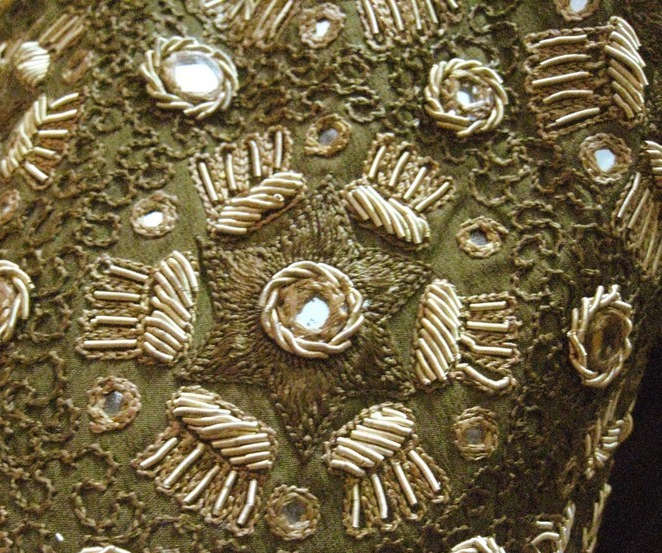===
0109,
2
===

=== |
 |
ḳhākī : 'Of the dust, of ashes; earthy; earthly, terrestrial; dusty; dust-coloured'. (Platts p.485)
jilā : 'Brightening, polishing, scouring; brightness, polish, lustre, splendour, enamel'. (Platts p.386)
qābil : 'Receiving, taking; admitting (of, - ke ), capable (of); sufficient (for); possible, practicable; liable (to); capable, able, clever, skilful, competent, fit, qualified; deserving, worthy'. (Platts p.785)
FWP:
SETS == VARNAH
MOTIFS == MIRROR
NAMES == ADAM
TERMS == AFFINITYI've translated ḳhākī as 'dusty' in order to keep the simplicity and directness of the Urdu, which is simply 'dust' with an adjectival ending attached. So it could be envisioned as 'made of dust', 'dust-colored' (the source of our 'khaki'), 'looking dusty', 'earth-dwelling', 'bound for dust', or 'pertaining to dust' in any other relevant sense.
So we have the elegantly paradoxical pairing of dust versus polish-- a dusty condition is the opposite of a polished one, yet dust is the means of creating polish. And we also have ādam and ʿālam , another evocative pair distinguished in pronunciation only by one consonant.
SRF provides a sophisticated tour through the mystical possibilities. Mankind is both exalted (the cosmic mirror is incomplete without his polishing of it), and humbled (he must become dust in order to perform the polishing). Dust is the key to it all.